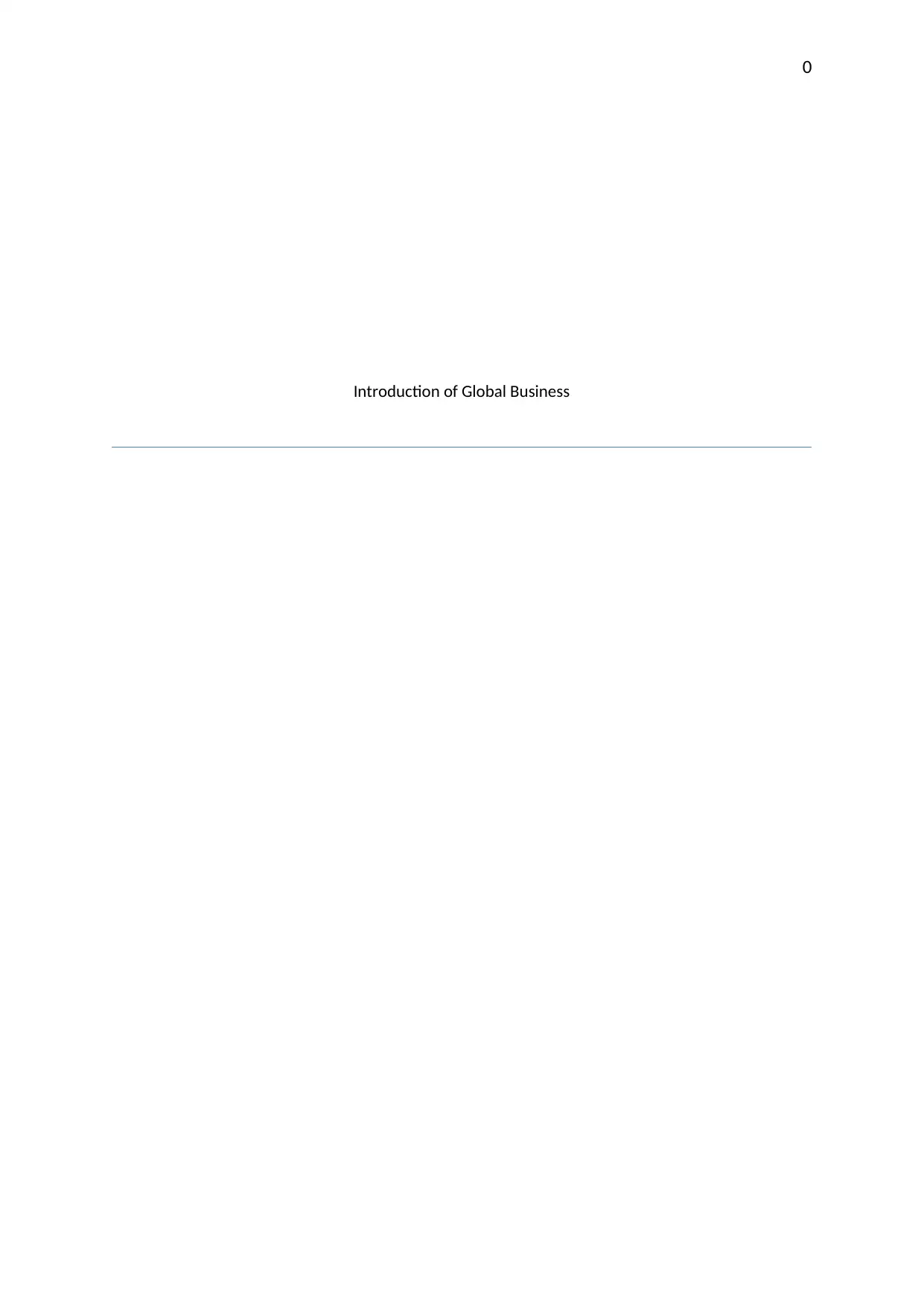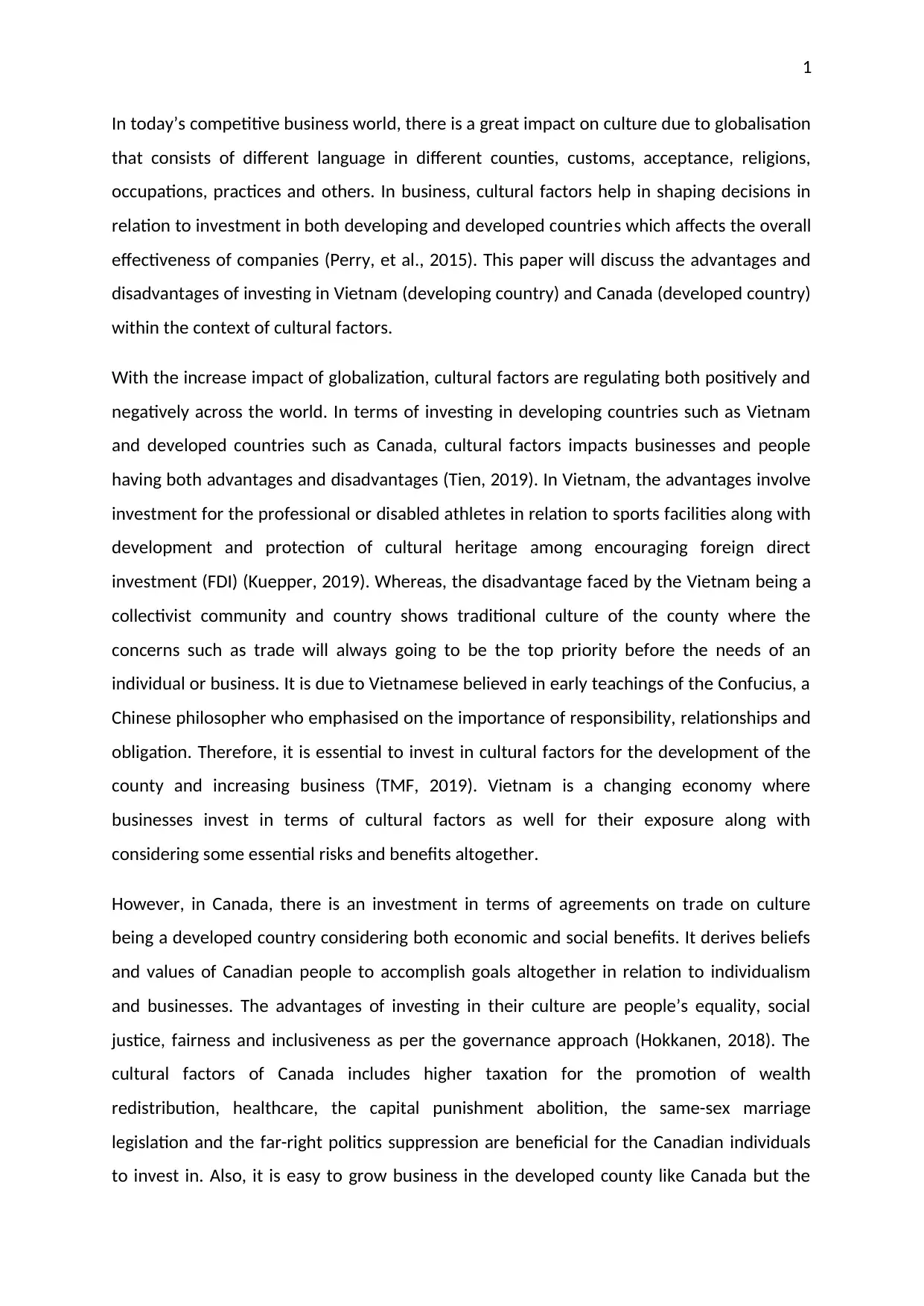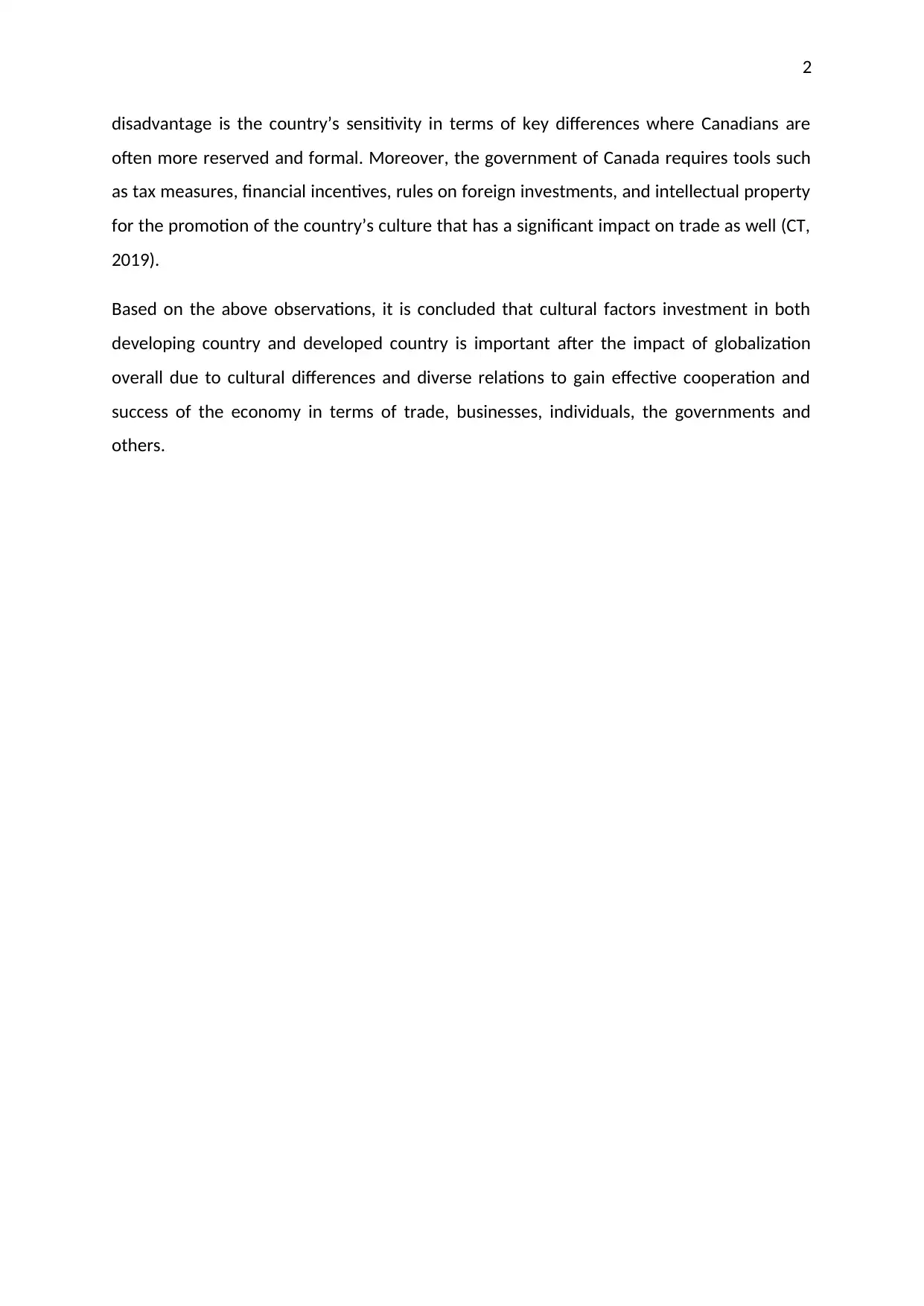Investing in Vietnam and Canada: A Cultural Analysis Report
VerifiedAdded on 2022/08/01
|4
|785
|13
Report
AI Summary
This report examines the impact of cultural factors on global business investment, contrasting Vietnam and Canada. It highlights the advantages and disadvantages of investing in each country, considering their distinct cultural landscapes. In Vietnam, the report discusses the influence of collectivist values and the importance of cultural heritage, while in Canada, it explores the impact of individualism, social justice, and government regulations. The analysis covers how cultural differences affect business decisions, trade, and overall economic success, emphasizing the importance of understanding cultural nuances for effective international cooperation. The report references key sources to support its findings, providing a comprehensive overview of the cultural dimensions of global business investment in both developing and developed countries.
1 out of 4










![[object Object]](/_next/static/media/star-bottom.7253800d.svg)